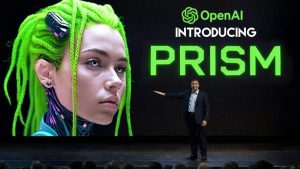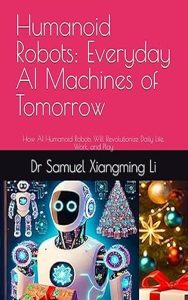Harvard Opens the Gates to a Million-Book AI Library

Each day, artificial intelligence becomes more intertwined with our lives. Yet, not everyone has a say in the arena. Harvard’s new initiative aims to change that.
By unlocking nearly a million public-domain titles, startups and researchers now have a goldmine at their fingertips. This effort can reshape the AI training ground, leveling the playing field. Harvard’s vision: More inclusive learning.
The Genesis of an AI Treasure Trove
Imagine a library so vast it holds almost a million books. That’s Harvard’s new gift to AI developers. These books are open to those building large language models, turning a mishmash of data into structured learning.
Before, AI models were starved for quality material. With copyright issues and data messiness, there was no easy fix. Harvard’s initiative breaks these chains, offering streamlined data from literature legends like Shakespeare and Dickens.
Why This Dataset Matters
Not all AI training material is easy to obtain. That’s a reality many face. Harvard’s collection skips the usual hurdles of copyright and poor organization.
By providing organized data, Harvard supports budding AI developers. This allows even small startups to venture into AI without getting bogged down by the complexity of gathering data.
Collaborative Efforts for a Greater Good
It wasn’t just Harvard’s doing. OpenAI and Microsoft lent a hand in this grand project, making it a collaborative triumph.
The dataset was a joint vision to share knowledge freely. When big names in tech come together, innovation follows. Soon, news articles from the Boston Public Library may join this initiative too.
Sharing resources democratizes AI development. It gives everyone, from students to tech giants, an equal shot at innovation.
Impact on the AI Landscape
The influence of such an initiative is profound. In the AI world, this data offers a wide scope for training models.
Beyond books, this opens doors to more varied content. With time, this will encourage a wider range of AI applications, helping industries from healthcare to finance.
Future Prospects: Expanding the Resource Pool
Harvard doesn’t plan to stop here. There’s more in store for the world of AI. The future might see datasets expanding to other media.
With a base of a million titles, the potential for new learning tools is endless.
Expanding these resources means AI can learn from diverse sources. It can make storytelling more engaging, create better learning systems, and much more. Innovation is just beginning.
Engaging a Broader Audience
Offering this data brings new hope to AI enthusiasts.
As more individuals gain access, talent from all corners can join the race to innovate. This could lead to breakthroughs previously thought impossible.
Engaging a wider audience means more creative solutions. Together, they can craft a future that’s smart and inclusive.
Harvard’s Vision of Global Collaboration
Harvard envisions a world where information is shared. This step is part of a bigger goal to unify data sharing globally.
By doing so, they promote a culture of collaborative learning. It’s about bringing together minds from across the globe.
Creating a culture of sharing inspires unity. When knowledge flows freely, everyone benefits.
A Step Toward Ethical AI Development
Ethical AI use is a concern. This initiative takes a step toward responsible AI development.
Using public-domain materials ensures no misuse of copyrighted work.
Ethical guidelines are easier to follow with accessible data, paving a path for more responsible innovation.
Challenges Ahead
Creating a resource this vast isn’t without challenges. Managing such data requires effort.
There are technical and ethical hurdles, but solutions are possible with the right mindset.
Overcoming these challenges can lead to a future where AI development is both innovative and ethical.
Harvard’s initiative is a beacon of change. It’s an invitation to innovate and to grow. The future looks promising for AI.






